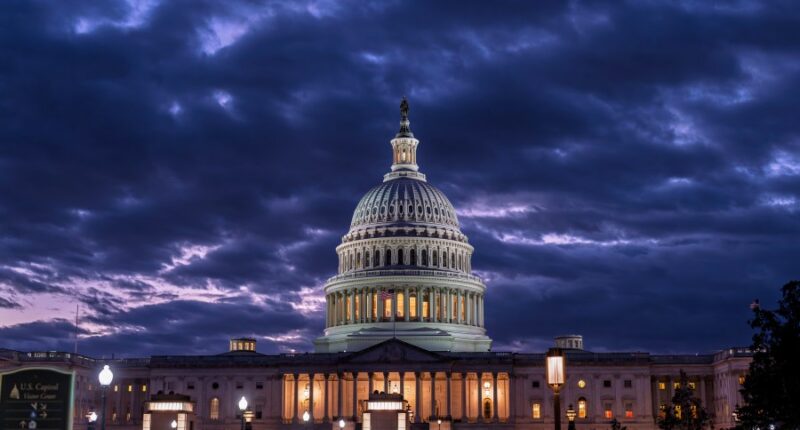Share this @internewscast.com

As the federal government shutdown approaches its one-month anniversary, the ripple effects of halted funding are becoming increasingly apparent across the nation. States are hastily devising plans to mitigate deficits in food and child development programs, while military personnel face the prospect of missing their upcoming paychecks.
Numerous federal employees have already endured weeks without pay, and now, as the shutdown drags on, the financial buffers that sustained some initiatives are waning. This depletion introduces further challenges as Congress remains at an impasse over a funding resolution for the government.
Here’s a glimpse of what millions of Americans might encounter this week:
Friday
The Trump administration has indicated that resources for a vital food assistance program could be exhausted, affecting 42 million individuals who depend on these funds to supplement their grocery purchases. The administration has opted not to deploy over $5 billion in emergency reserves to maintain the Supplemental Nutrition Assistance Program (SNAP) into November.
SNAP supports approximately one in eight Americans by providing grocery funds through debit cards, regularly replenished by federal allocations. Although some states have vowed to uphold benefits even if federal distributions cease, a U.S. Department of Agriculture memo warns that these states would not receive reimbursement for covering the costs temporarily.
Additionally, a program aiding over 6 million low-income mothers, infants, and pregnant women in acquiring essential nutrition, such as baby formula, is expected to experience financial shortfalls the following week. Although WIC received a $300 million boost from the Trump administration earlier this month, those funds are rapidly depleting as well.
Also on Friday, the nation’s 1.3 million active-duty service members are at risk of missing a paycheck. Earlier this month, the Trump administration ensured they were paid by shifting $8 billion from military research and development funds to make payroll. But it is unclear if the Trump administration is willing — or able — to shift money again.
Last week, the Pentagon confirmed that it had accepted an anonymous $130 million gift to help pay military members during the shutdown, a bequest that amounted to a small contribution toward the billions needed to cover service member paychecks.
Saturday
More than 130 Head Start preschool programs won’t receive their annual federal grants on Nov. 1 if the government remains shut down, according to the National Head Start Association.
Centers are scrambling to assess how long they can stay open, since nearly all their funding comes from federal taxpayers. Head Start provides education and child care for the nation’s neediest preschoolers. When a center is closed, families may have to miss work or school.
With new grants on hold, a half-dozen Head Start programs have already missed federal disbursements they were expecting Oct. 1 but have stayed open with fast-dwindling reserves or with help from local governments. All told, more than 65,000 seats at Head Start programs across the country could be affected.
Also Saturday, the window opens for enrolling in Affordable Care Act health plans. In past years, the Centers for Medicare and Medicaid Services has allowed consumers to preview their health coverage options about a week before open enrollment. But as of this week, Healthcare.gov appeared to show 2025 health insurance plans and estimated prices, instead of next year’s options.
___
Meg Kinnard can be reached at

















